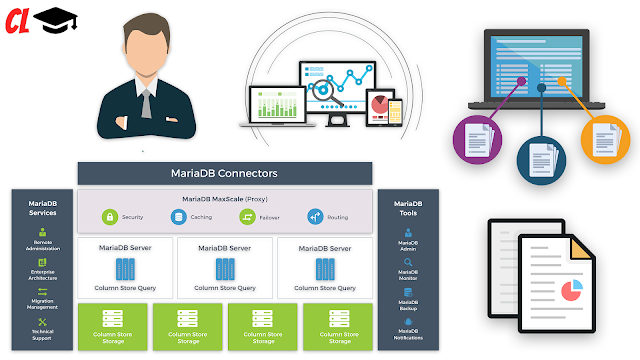Before modern computers existed or you can say before computers were
economically feasible,
It was the case that there wasn't a lot of data, data was so little that people could write it down in registers too.
In the early days of internet and data storage, the requirement of storage capacity and efficiency wasn't much.
Slowly with the development of the internet and the surge in data size brought about technological advancement in storage capacities, resulting in this newfound requirement of organizing data efficiently.
But with the advent of Big Data, the necessity wasn't just organizing but organizing and arranging efficiently while providing easy-to-use UI(User Interface) due to the sheer loads of data there was.
Thus came Database Management System.
It was the case that there wasn't a lot of data, data was so little that people could write it down in registers too.
In the early days of internet and data storage, the requirement of storage capacity and efficiency wasn't much.
Slowly with the development of the internet and the surge in data size brought about technological advancement in storage capacities, resulting in this newfound requirement of organizing data efficiently.
This resulted in a file system tool, that stored and arranged files, it
had solved the organization part of the problem.
But with the advent of Big Data, the necessity wasn't just organizing but organizing and arranging efficiently while providing easy-to-use UI(User Interface) due to the sheer loads of data there was.
Thus came Database Management System.
A file system is the storage of files
in a hard medium eg. a hard disk or a floppy disk.
It helps in the organization of files by arranging files into folders into directories with access to other features.
Whereas a database management system is a software that can do all the traditional tasks of a file system efficiently, whether its storage or retrieval of data or additional access measures to be kept in place while simultaneously providing options for editing data, deleting data, SQL queries.
It helps in the organization of files by arranging files into folders into directories with access to other features.
Whereas a database management system is a software that can do all the traditional tasks of a file system efficiently, whether its storage or retrieval of data or additional access measures to be kept in place while simultaneously providing options for editing data, deleting data, SQL queries.
Traditional File System Approach
The file system is a storage method that assorts files on a physical storage medium or stores them into hardware like a hard disk, DVD, CD, or Pen drive. It is pre-installed in Operating Systems like Windows, macOS, Linux, etc.
Organization and retrieval of files are supported and said files are grouped into folders that are made of directories. Different users generally have their copy of directories made from the main directory.
Primary examples are NTFS (New Technology File System) & EXT FS(Extended File System).
Database Management System Approach
Database Management System is an application software framework primarily made for the storage, management, and retrieval of related data collection.
DBMS considers many loopholes and downsides of traditional methods and has built-in solutions for such problems eg. an emphasis on security, data safety, recovery, and unauthorized access.
We shall learn more in detail later. . .
Advantage Of The DBMS Approach
Although the file system method is old it has its advantages and merits to it, namely if you wish to access a specific file from a large amount of data it is much lightweight and easy to do it.
But it comes with its disadvantages as well.
Some of them are:
Inconsistency in data
Redundancy in data
Searching and sharing of said data
Maintaining Integrity and security of data
Data concurrency
Table Traditional File System Vs Database Management System
Tags:
Data Base


